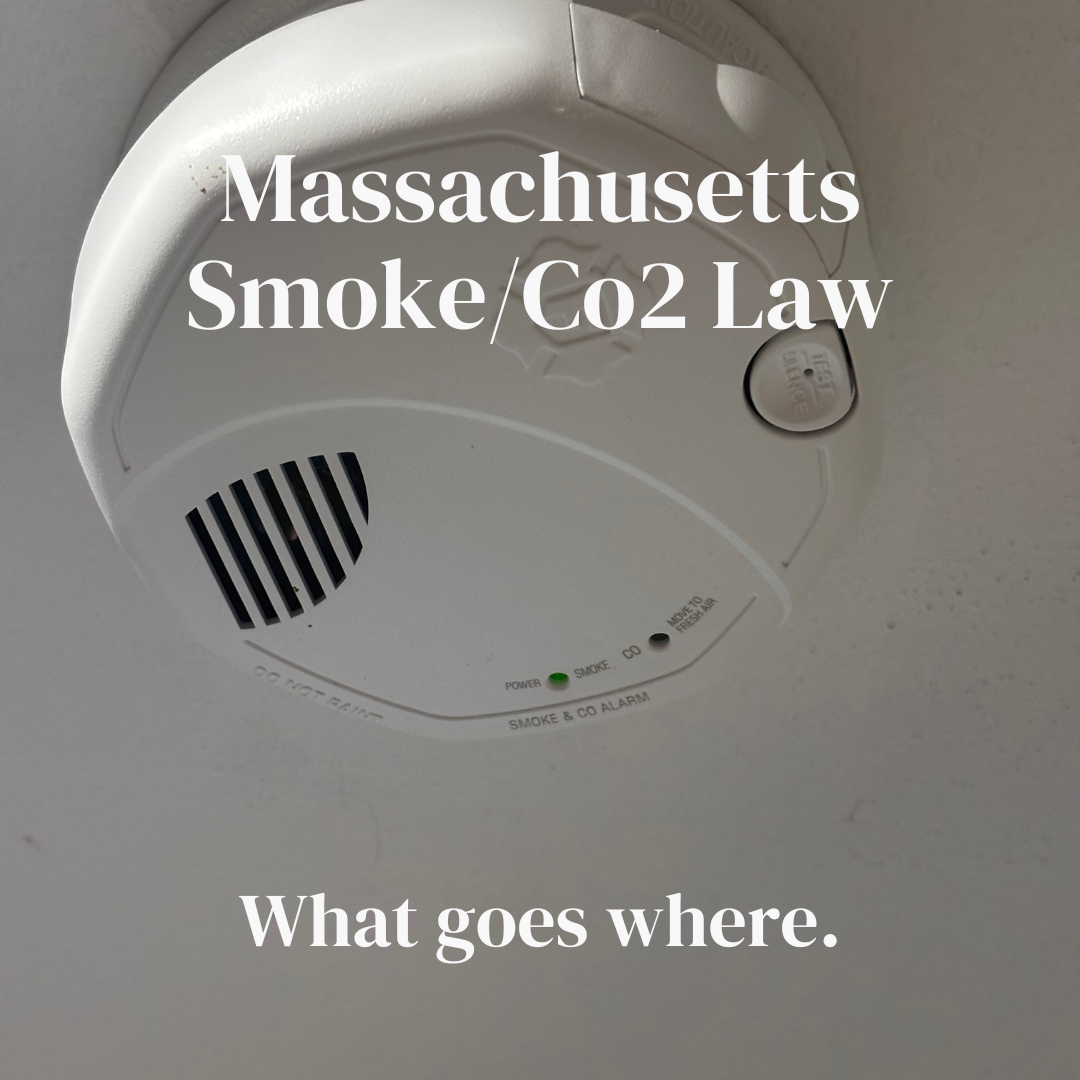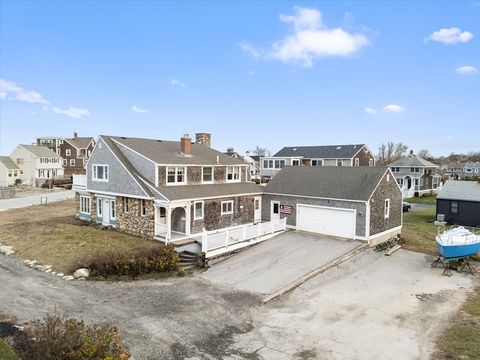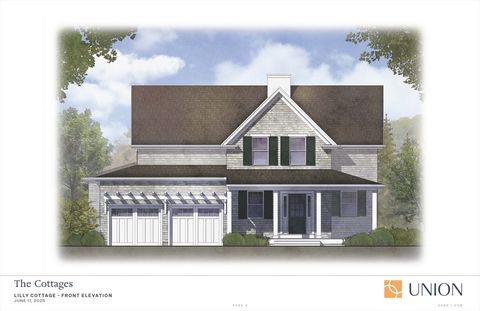Massachusetts Smoke Detector Law: What Home Sellers Need to Know Before Inspection
Meta Description:
Selling your Massachusetts home? Learn exactly where smoke and carbon monoxide detectors must be placed, how the age of your home affects requirements, and why scheduling your fire inspection early can save your closing.
Introduction
Selling a home in Massachusetts involves more than signing papers and handing over keys. One crucial — and often overlooked — step is passing the fire department’s smoke and carbon monoxide inspection. Without that certificate, your home simply can’t close.
Too many sellers wait until the last minute to schedule this inspection, only to find their local fire department fully booked. The result? Stress, delays, and sometimes postponed closings. Massachusetts law is specific about where smoke detectors belong, how many you need, and what type of alarm meets code — all of which depend on when your home was built.
This guide breaks down everything you need to know as a seller: from placement rules to scheduling tips, so your smoke inspection is one less thing standing between you and the closing table.
Key Takeaways
🔥 Every Massachusetts home sale requires a fire department smoke and carbon monoxide certificate — valid for six months.
🏡 Placement rules depend on the home’s age. Older homes built before 1975 have different standards than newer builds after 1997.
📍 Smoke detectors are required on every level of the home, including basements and finished attics, plus inside or just outside every bedroom.
💨 Carbon monoxide detectors must be installed on every habitable level, especially near bedrooms and fuel-burning appliances.
⏰ Schedule inspections early. Fire departments have limited availability, and last-minute scheduling can delay closing.
Understanding the Massachusetts Smoke Detector Law
Massachusetts requires every home being sold to pass a fire department inspection confirming the smoke and carbon monoxide alarms are properly installed and working. This inspection is regulated by your local department, not a private company, and you’ll receive a Certificate of Compliance once approved.
Without that certificate, the closing attorney or lender cannot finalize your sale. Because inspections are often booked two to three weeks out, it’s smart to schedule yours early — even right after listing the home. Since the certificate is good for six months, you can secure it early and stay compliant through closing.
General Placement Requirements
No matter when your home was built, these are the basic statewide requirements:
One smoke detector per level (including basements and habitable attics).
One smoke detector outside each sleeping area — and inside bedrooms if built or renovated after 1997.
Carbon monoxide detectors on every habitable level, and within 10 feet of all bedrooms.
Ceiling-mounted detectors at least 4 inches away from walls, or wall-mounted detectors 4–12 inches below the ceiling.
Avoid placing detectors near kitchens, bathrooms, or heating vents to prevent false alarms.
Combination smoke/CO alarms must meet Massachusetts Department of Fire Services (DFS) standards and comply with NFPA 72 codes.
Smoke Detector Requirements by Age of Home
Homes Built Before 1975 — Battery-Powered Allowed
Photoelectric smoke detectors are required.
At least one on each level, one outside each sleeping area, and one at the top of each stairway.
Battery-powered alarms are allowed, though 10-year sealed battery models are strongly recommended.
Pro Tip: Even though battery units are legal, upgrading to sealed lithium models ensures compliance and minimizes false alarms.
Homes Built 1975–1997 — Hardwired, Not Interconnected
Detectors must be hardwired with battery backup.
Interconnection (where all alarms sound together) is not required.
Same placement: one per level, one outside sleeping areas, and one at stair tops.
Seller Tip: A disconnected or malfunctioning hardwired unit can fail your inspection, even if others work fine.
Homes Built After 1997 — Hardwired and Interconnected
All detectors must be hardwired, interconnected, and have battery backup.
Required inside every bedroom, outside sleeping areas, and on each level.
Combination smoke/CO detectors are acceptable if DFS-approved.
Seller Tip: Ensure all detectors are the same brand — mismatched units can prevent interconnection and cause inspection failure.
Carbon Monoxide Alarm Requirements
Under M.G.L. Chapter 148, Section 26F½, every home with fuel-burning equipment or an attached garage must have CO alarms:
On every habitable level,
Within 10 feet of each bedroom, and
In basements with heating systems.
Even if your home is fully electric, many fire departments still expect CO alarms for consistency and safety verification.
Preparing for Your Smoke & CO Inspection
Schedule Early
Book the inspection as soon as your home hits the market or goes under agreement.
Some fire departments only inspect 2–3 days per week.
The certificate is valid for six months, so scheduling early is always safe.
Avoid Common Mistakes
Expired alarms (older than 10 years).
Wrong alarm type (photoelectric required).
Dead batteries or disconnected wiring.
Improper placement near vents, kitchens, or corners.
Mismatched brands in an interconnected system.
Quick checklist before inspection:
✅ Test all detectors.
✅ Check dates on the back of each unit.
✅ Clean out dust with compressed air.
✅ Ensure all alarms sound clearly and simultaneously (if required).
Cost, Process, and Validity
Inspection fees: typically $50–$100 for single-family homes, up to $200 for multi-family properties.
Time required: usually 10–20 minutes, depending on home size.
Certificate validity: good for six months from issue date.
If your home fails inspection, make the corrections and request a re-inspection. Most departments can return within a few days once issues are resolved.
Frequently Asked Questions
1. What happens if my home fails the smoke inspection?
You’ll receive a list of corrections to make — like adding detectors or adjusting placement — and you’ll need to reschedule. Once fixed, the re-inspection is usually quick.
2. Do I need a new certificate if closing is delayed?
Only if it’s delayed beyond six months from the certificate’s issue date.
3. Can I mix old and new detectors?
Avoid it. Your system must meet the standard for the home’s construction year, and all interconnected detectors must match in brand and compatibility.
4. What about multi-family homes or condos?
Each unit must meet the same requirements, plus common areas (like hallways or basements) must have properly placed alarms.
5. Are smart smoke detectors allowed?
Yes — if they’re photoelectric and DFS-approved. Smart alarms like Nest Protect often qualify and simplify testing.
Final Thought
Massachusetts takes smoke and carbon monoxide safety seriously — and so should sellers. Getting ahead of your inspection not only protects your home’s occupants but also protects your closing date. Schedule early, double-check your detectors, and avoid the last-minute scramble that too many sellers face.
A little preparation today keeps your sale on schedule tomorrow.
About the Author
Bill Tierney, REALTOR® with William Raveis Real Estate in Scituate, MA, is known throughout the South Shore as “The Internet Savvy Realtor.” Serving Scituate and Cohasset homeowners, Bill combines deep local market knowledge with hands-on experience helping sellers prepare their homes for smooth, on-time closings.
📞 617-653-1955
📧 [email protected]
🌐 Learn more or contact Bill today for expert advice on preparing your home for sale on the South Shore.






















